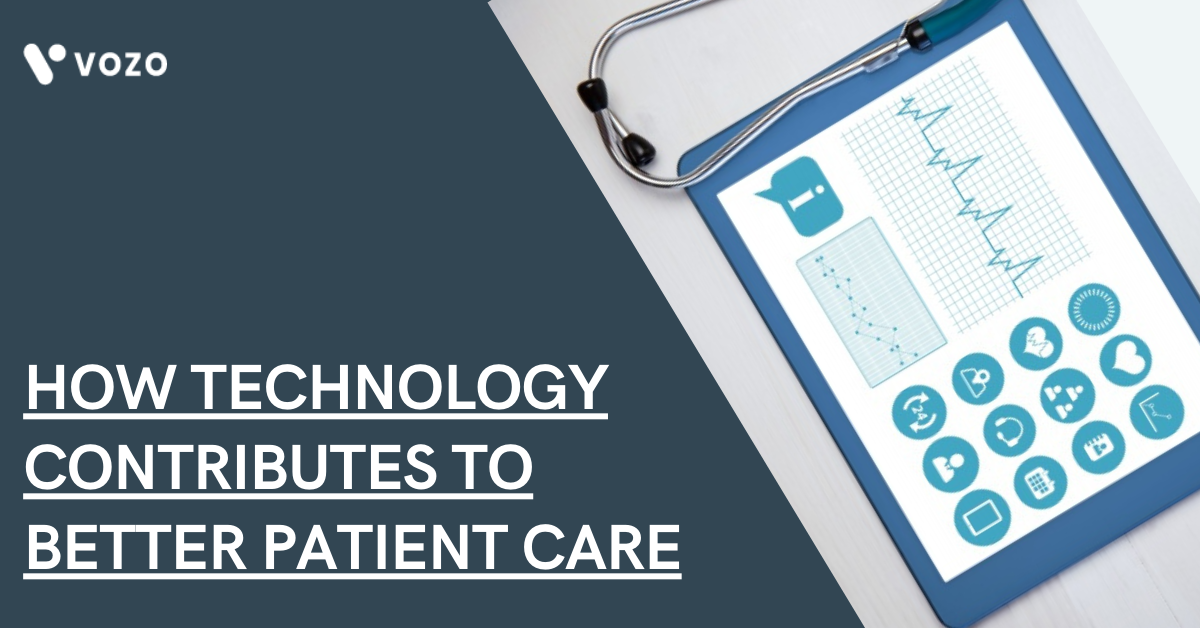How Technology Contributes To Better Patient Care
Today, technology is considered to be the topmost driving force behind healthcare development. Some of the recent healthcare reports have clearly shown that the increased accessibility of treatment is one of the most real methodologies that technology has changed healthcare. After the outbreak of the pandemic, the Health IT sector opens up many more avenues of research, which allows experts to deliver healthcare more effectively than before. In this article, we explain some of the best ways how technology is improving patient care.
The Role Of Technology In Improving Patient Care
The use of information technology has made patient care safer and more reliable in most applications. The fact that nurses and doctors who are working on the frontline are now routinely using hand-held computers to record important real-time patient data and then sharing it instantly within their updated medical history is an excellent illustration of the benefits of health IT.
Being able to accumulate lab results, records of vital signs, and other critical patient data into one centralized area has transformed the level of care and efficiency a patient can expect to receive when they enter the healthcare system. An increased level of efficiency in data collection means that a vast online resource of patient history is available to scientists, who are finding new ways to study trends and make medical breakthroughs at a faster rate.
While we can’t make more time, the integration of technology into most facets of healthcare has created efficiencies so vast and impactful in some areas that it’s almost as amazing as a time-generating machine might be. On the operational side, integrated electronic health records (EHR) software has allowed even the smallest clinical practices to become more efficient across their entire business, saving money and man-hours, while freeing up physicians to spend more time with their patients.
RELATED: Ensuring Patient Access Boosts Your RCM Success
How Technology Benefits Providers & Patients
Effective Communication Is Possible Than Ever
Over the last five years, there has been a sizable shift in favor of transparency across the board in just about every facet of healthcare, from tracking the way departments communicate, to how data is collected, measured, and analyzed.
None of this would be possible without technological innovations in healthcare software, including EHRs and the trend toward digital-first RCM. With time ever-more limited, faster, and more efficient communication and data analysis put less stress on physicians, freeing them up to focus on patient care.
Accurate And Better Billing
Billing is one of the most important and complex areas of healthcare systems, and achieving perfect accuracy is nearly impossible given the number of departments, organizations, and individuals involved. However, huge advances in medical coding software are making errors much less common.
This allows a smoother, faster flow of revenue back to healthcare organizations from both insurers and patients. It also improves the patient experience when billing is as accurate as possible. Nothing is more likely to create friction than incorrect billing that causes a claim to come back to a patient denied due to a coding error.
Patient-Centered Care
Encouraging patients to be more involved in their care is important for many reasons including increased compliance and patient satisfaction. Technology helps contribute to patient-centered care by fostering communication between providers and patients via online portals, text messaging, and email. It also increases access to information such as online medical records, which can improve self-monitoring and patient convenience.
Complete Access To Information
Many serious medication errors are the result of clinicians not having sufficient information about the patient or drug. Information technology has drastically improved the access to reference information. A large range of drug-reference information is now available for hand-held devices, and clinicians can quickly access textbooks, databases, and other medical references online.
Final Thoughts
The improvements in healthcare technology have a huge positive impact on patient care. There is no doubt that health IT is a crucial tool for improving patient safety and healthcare quality. But, healthcare organizations need to be selective in which technology to invest in for better productivity and enhanced practice workflow.
Vozo EHR and medical billing software help healthcare providers to primarily focus on delivering quality patient care by offering the best healthcare solutions.
About the author

With more than 4 years of experience in the dynamic healthcare technology landscape, Sid specializes in crafting compelling content on topics including EHR/EMR, patient portals, healthcare automation, remote patient monitoring, and health information exchange. His expertise lies in translating cutting-edge innovations and intricate topics into engaging narratives that resonate with diverse audiences.













